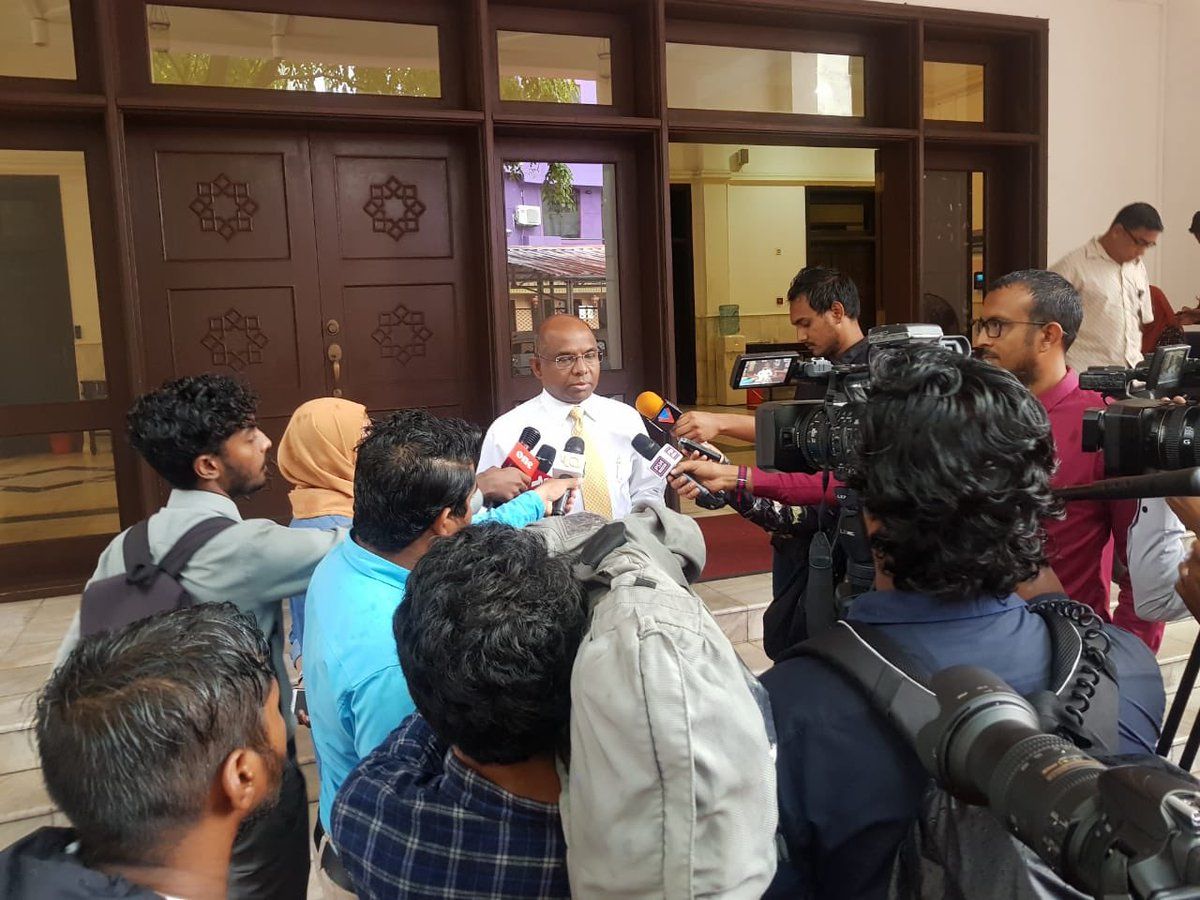Lawmakers seek repeal of anti-defamation and anti-defection laws
A bill to repeal the anti-defection law was proposed by PPM deputy leader Riyaz Rasheed.

25 Oct 2018, 09:00
Lawmakers proposed Wednesday bills to decriminalise defamation and repeal a controversial law that unseats lawmakers who cross the floor.
A bill to repeal the widely-condemned anti-defamation law was submitted on behalf of the joint opposition by MP Abdulla Shahid.
The “draconian” law has to be abolished to protect constitutional rights in line with the country’s obligations under international treaties, Shahid told reporters.
It would restore freedom of expression and “remove the shackles” from the media, he added.
Become a member
Get full access to our archive and personalise your experience.
Already a member?
Discussion
No comments yet. Be the first to share your thoughts!
No comments yet. Be the first to join the conversation!
Join the Conversation
Sign in to share your thoughts under an alias and take part in the discussion. Independent journalism thrives on open, respectful debate — your voice matters.




